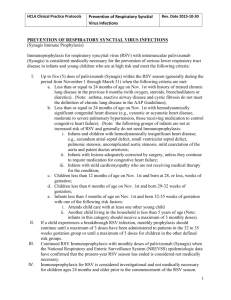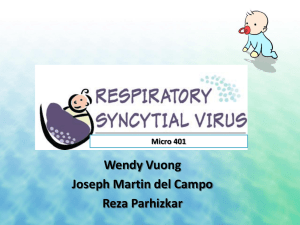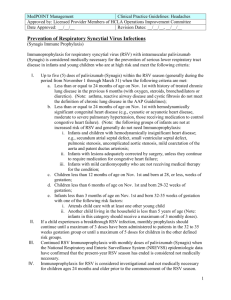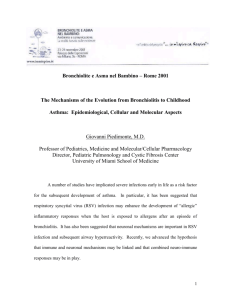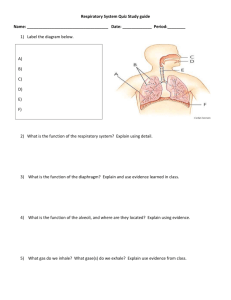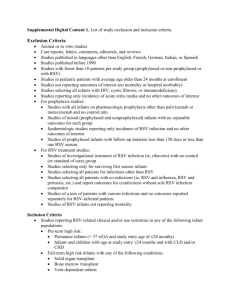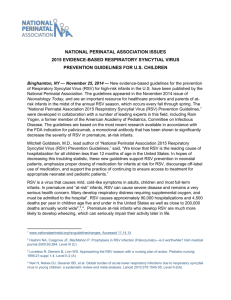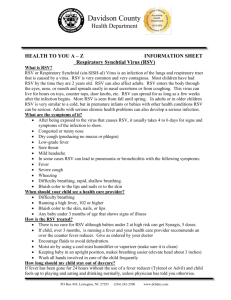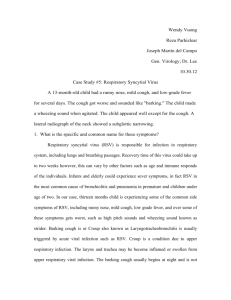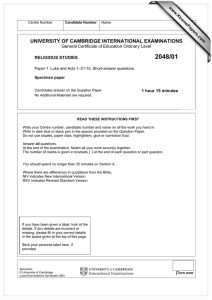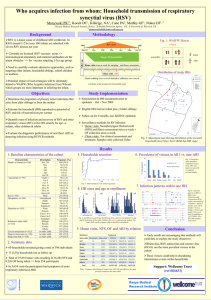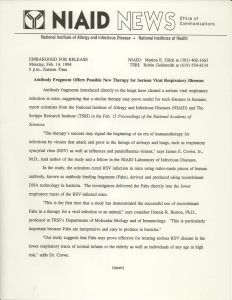RESPIRATORY SYNCYTIAL VIRUS (RSV) INFECTION
advertisement
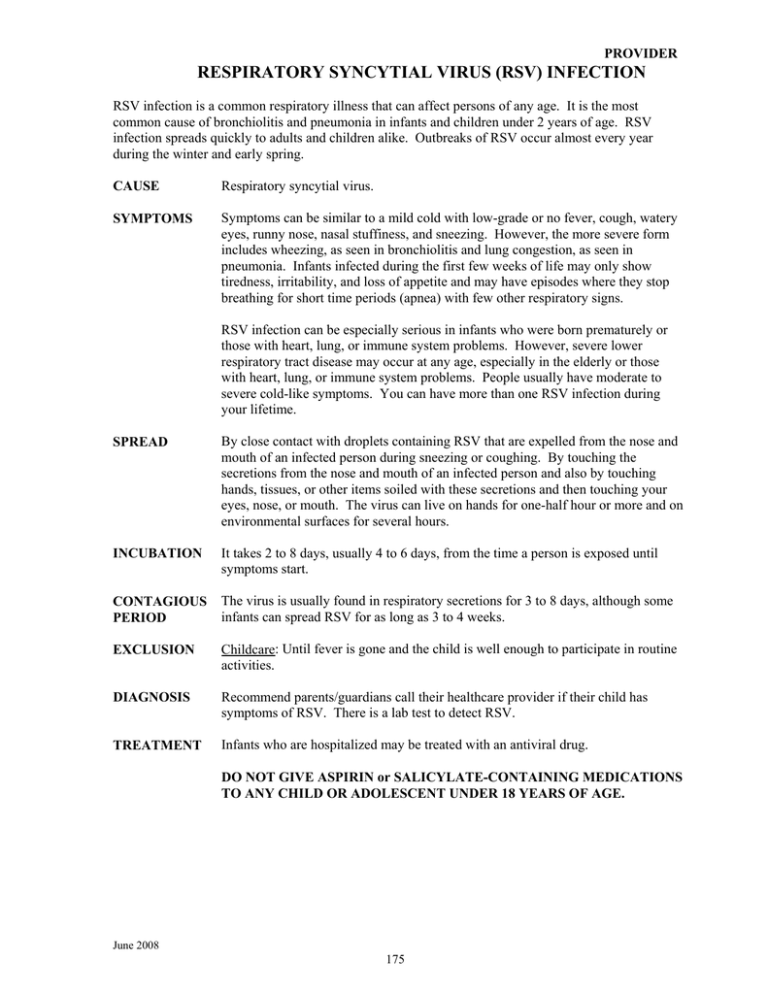
PROVIDER RESPIRATORY SYNCYTIAL VIRUS (RSV) INFECTION RSV infection is a common respiratory illness that can affect persons of any age. It is the most common cause of bronchiolitis and pneumonia in infants and children under 2 years of age. RSV infection spreads quickly to adults and children alike. Outbreaks of RSV occur almost every year during the winter and early spring. CAUSE Respiratory syncytial virus. SYMPTOMS Symptoms can be similar to a mild cold with low-grade or no fever, cough, watery eyes, runny nose, nasal stuffiness, and sneezing. However, the more severe form includes wheezing, as seen in bronchiolitis and lung congestion, as seen in pneumonia. Infants infected during the first few weeks of life may only show tiredness, irritability, and loss of appetite and may have episodes where they stop breathing for short time periods (apnea) with few other respiratory signs. RSV infection can be especially serious in infants who were born prematurely or those with heart, lung, or immune system problems. However, severe lower respiratory tract disease may occur at any age, especially in the elderly or those with heart, lung, or immune system problems. People usually have moderate to severe cold-like symptoms. You can have more than one RSV infection during your lifetime. SPREAD By close contact with droplets containing RSV that are expelled from the nose and mouth of an infected person during sneezing or coughing. By touching the secretions from the nose and mouth of an infected person and also by touching hands, tissues, or other items soiled with these secretions and then touching your eyes, nose, or mouth. The virus can live on hands for one-half hour or more and on environmental surfaces for several hours. INCUBATION It takes 2 to 8 days, usually 4 to 6 days, from the time a person is exposed until symptoms start. CONTAGIOUS PERIOD The virus is usually found in respiratory secretions for 3 to 8 days, although some infants can spread RSV for as long as 3 to 4 weeks. EXCLUSION Childcare: Until fever is gone and the child is well enough to participate in routine activities. DIAGNOSIS Recommend parents/guardians call their healthcare provider if their child has symptoms of RSV. There is a lab test to detect RSV. TREATMENT Infants who are hospitalized may be treated with an antiviral drug. DO NOT GIVE ASPIRIN or SALICYLATE-CONTAINING MEDICATIONS TO ANY CHILD OR ADOLESCENT UNDER 18 YEARS OF AGE. June 2008 175 RESPIRATORY SYNCYTIAL VIRUS (RSV) INFECTIONS PREVENTION/CONTROL • Cover nose and mouth with tissue when coughing or sneezing or cough/sneeze into your sleeve. Dispose of used tissues. • Wash hands thoroughly with soap and warm running water after contact with secretions from the nose or mouth. Thorough handwashing is the best way to prevent the spread of communicable diseases. • DO NOT share cups, glasses or eating utensils. • Clean and disinfect commonly touched surfaces (door knobs, refrigerator handle, water faucets, cupboard handles) at least daily. (See pgs 34-36.) • Clean and sanitize mouthed toys, objects, and surfaces at least daily and when soiled. Clean and sanitize all dishes and silverware after each use. (See pgs 34-36.) • Certain high-risk infants (e.g., premature babies) can be given a medication to prevent infection. Have the parents/guardians talk to their healthcare provider. For more information, call your school nurse. Prepared by Hennepin County Human Services and Public Health Department (HSPHD) June 2008 176
